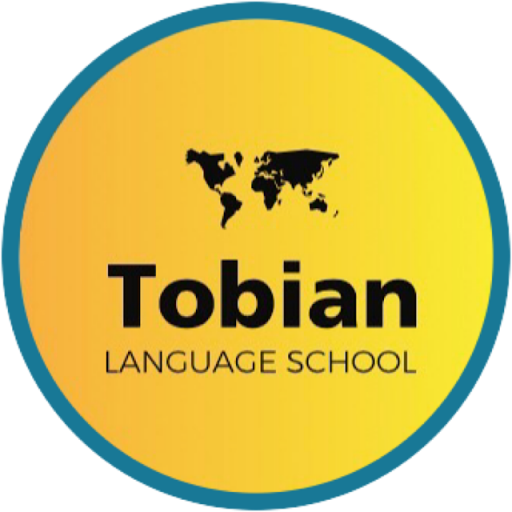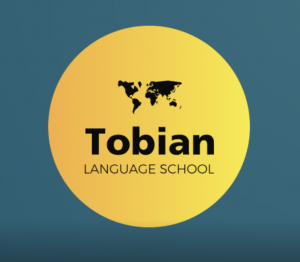Monolingualism Is No Longer the Norm
- April 3, 2025
- By Tim Lorenz
Monolingualism is becoming a thing of the past.
With globalization, remote work, and international business on the rise, speaking multiple languages is now a key advantage. Studies show that nearly half of the world’s population is bilingual, and most job listings require proficiency in at least one additional language.
Learning a second language not only enhances career prospects but also improves cognitive skills, expands social circles, and provides access to international education opportunities. Don’t get left behind—start your multilingual journey today!

Table of Content
Introduction
You may wonder why it seems like everyone speaks or wants to learn a second language or more these days.
The reality is that with globalization, increased travel, and a generation that prefers to explore the world rather than settle in one place, mastery of more than one language has become a necessity to access new opportunities and experiences.
Below, we explore some of the most important reasons why multilingualism has become an essential skill.
The Impact of Globalization on Communication

Globalization has transformed the way we interact, access information, and relate to the world. Thanks to the Internet, technological advances, and the growth of multinational companies, communication has overcome borders and cultural barriers.
Today, we can access content in different languages with just a click, giving us the opportunity to learn from diverse sources, cultures, and perspectives. In addition, the rise of tourism and the expansion of international business have made speaking more than one language a key competitive advantage. Not mastering another language can mean losing out on work, academic, or even personal opportunities in a world that increasingly demands greater flexibility and adaptation.
If you want to be part of this process and not be left behind, learning a second (or third) language can make a difference. Not only will it open doors for you in the professional field, but it will also allow you to connect with more people, access quality information in its original language, and expand your vision of the world.
Remote work is expanding and has become a new norm in the world of work.

Today, more and more people are looking for the flexibility of working from anywhere, whether from the comfort of their home, a coffee shop in their city, in another country or even on a different continent.
Remote work has transformed the way we understand the balance between personal and professional life, offering the possibility of carrying out our work without being tied to a physical office. As long as you have your computer with you and a good internet connection, the world becomes your workspace.
For the new generations, this freedom represents an invaluable advantage. Not only does it allow you to travel and discover new cultures without giving up job stability, but it also provides the opportunity to experience work in a more dynamic and enriching way. Being able to choose where to live and work according to our personal preferences and goals is a revolution that is redefining the future of employment.
According to projections by “The Economist”, by 2035 there could be more than one billion people working remotely.
This transformation is not limited to the corporate sector, but has also reached social and environmental impact areas. More and more organizations in these areas are open to implementing flexible work models, whether completely remote or in a hybrid format.
Most companies that offer remote work opportunities require employees to speak a second language, either because they collaborate with international clients or operate on a global scale. Having multilingual skills gives you a significant advantage when applying for these types of jobs, expanding your career opportunities in an increasingly connected world.
Bilingualism: Data and Trends

According to the Journal of Neurolinguistics, 43% of the world’s population is bilingual, meaning that almost half of people use two languages in their daily lives. On the other hand, 40% of the population is monolingual, communicating only in one language. In addition, 17% is multilingual, mastering two or more languages. These data reflect the widespread presence of bilingualism and multilingualism throughout the world.
It is important to mention that the latest Eurobarometer on “Europeans and their languages,” released by the Commission , reveals that a significant 86% of Europeans think everyone should know at least one foreign language. Additionally, nearly three in five (59%) are able to hold a conversation in a second language.
These statistics highlight the growing importance of multilingualism in an increasingly interconnected world.
The Benefits of Speaking More Than One Language

Speaking multiple languages allows you to be more sociable and expand your network of friends by connecting with people from various countries. This not only broadens your social circle but also exposes you to diverse cultures, enriching your life and providing opportunities to learn from others.
In the professional field, being bilingual or multilingual significantly increases your employability. According to information published on the “Language Proficiency” website, 75% of job listings require proficiency in at least one additional language. This skill gives you a competitive edge, setting you apart from others and opening up a wide range of career opportunities.
In the academic field, multilingualism also offers more advantages, such as increased access to international study programs. Studying abroad allows you to gain valuable experiences that can enhance your academic journey and provide a solid foundation for your professional future.
Moreover, learning more than one language improves cognitive functions, such as multitasking and memory retention. It sharpens your brain’s ability to process information efficiently and enhances your mental flexibility, helping you think more quickly and manage tasks with greater ease.
The Most Useful Languages to Learn Today
According to the EF Language Institute, some of the most valuable languages to learn today include English, due to its dominance in business and technology; Spanish, for its increasing influence across the Americas and Europe; Mandarin Chinese, given China’s economic power; and French, which is widely spoken across multiple continents.
Gaining proficiency in one or more of these languages not only enhances career prospects but also makes communication easier in diverse international environments.
Conclusion
In conclusion, bilingualism is becoming firmly established in today’s society and, at this rate, it will continue to grow every year, leaving monolingualism behind. Mastering a second language not only gives you the ability to communicate with more people, but also opens doors to new personal, academic and professional opportunities.
Don’t be left behind. What are you waiting for to become part of a generation that is not satisfied with just one language, but seeks to expand its horizons and conquer the world with the power of communication?

